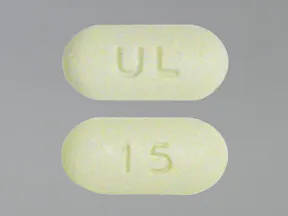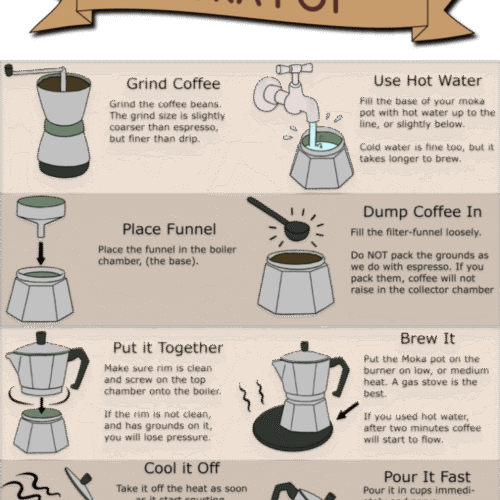You should avoid drinking coffee for at least one hour after taking meloxicam to ensure maximum effectiveness. Consuming coffee while taking meloxicam can increase the risk of experiencing side effects.
Meloxicam is a nonsteroidal anti-inflammatory drug (NSAID), and the combination of caffeine and NSAIDs can cause stomach upset, headache, and dizziness. It is best to wait for one hour before consuming coffee after taking meloxicam.
Understanding Meloxicam And Its Usage
html
Overview Of Meloxicam As A Medication
Meloxicam is a medication that belongs to the class of nonsteroidal anti-inflammatory drugs (NSAIDs). It is commonly prescribed to relieve pain, inflammation, and swelling caused by various conditions such as arthritis, osteoarthritis, and rheumatoid arthritis.
Why Is Meloxicam Prescribed?
Meloxicam is prescribed by healthcare professionals to manage symptoms associated with inflammatory conditions. It helps to alleviate pain, reduce inflammation, and improve joint mobility. The prescribed dosage is based on the specific condition being treated and the individual patient’s needs.
How Does Meloxicam Work?
Meloxicam works by blocking the production of certain substances in the body called prostaglandins. Prostaglandins are responsible for triggering pain, inflammation, and swelling. By inhibiting their production, Meloxicam helps to relieve pain and reduce inflammation.
Can You Drink Coffee With Meloxicam?
Many people wonder whether it is safe to drink coffee while taking Meloxicam. While there is no direct interaction between coffee and Meloxicam, it is generally advised to moderate coffee consumption when using this medication. This is because excessive caffeine intake can potentially increase the risk of certain side effects, such as stomach upset, headache, and dizziness, which are already associated with Meloxicam use.
However, it is important to note that individual responses to coffee and medications may vary, and it is best to consult with your healthcare provider for personalized advice. They can provide guidance on the appropriate caffeine intake based on your specific condition and overall health.
In conclusion, Meloxicam is a medication commonly prescribed to manage pain and inflammation associated with various conditions. While moderate coffee consumption is generally considered safe for most individuals on Meloxicam, it is recommended to consult with your healthcare provider for personalized advice on caffeine intake.

Credit: www.webmd.com
Interactions Between Meloxicam And Caffeine
Exploring The Potential Risks Of Combining Meloxicam And Caffeine
When it comes to medication and caffeine consumption, it’s always important to understand how different substances can interact in our bodies. Meloxicam, a non-steroidal anti-inflammatory drug (NSAID) commonly used to treat pain and inflammation, is no exception. In this article, we’ll explore the potential risks of combining Meloxicam with caffeine, shedding light on any possible interactions and their implications.
Can Caffeine Enhance Or Diminish The Effects Of Meloxicam?
The combination of caffeine and Meloxicam may raise questions about how these substances interact and whether they can enhance or diminish the effects of each other. It’s crucial to understand that the research in this area is still limited, and individual reactions may vary. However, experimental results have indicated that caffeine can effectively enhance the peripheral analgesic action of Meloxicam when combined in a pharmaceutical composition[^1^].
The peripheral analgesic activity of Meloxicam refers to its ability to reduce pain specifically at the site of inflammation. So, it seems that the addition of caffeine in certain formulations could potentially strengthen this analgesic effect. However, the precise mechanisms behind this interaction are still not fully understood, and further research is needed to confirm and explore this potential benefit.
On the other hand, it’s important to note that combining caffeine with Meloxicam can also lead to unwanted side effects. NSAIDs, including Meloxicam, can interact with caffeine and cause issues like stomach upset, headache, and dizziness[^2^]. These side effects may vary from person to person, and it’s crucial to be aware of any possible adverse reactions.
The Importance Of Understanding Drug Interactions
Understanding and being aware of potential drug interactions is essential to ensure the safe and effective use of medications. It’s always advisable to consult with a healthcare professional or pharmacist before combining Meloxicam with caffeine or any other substances. They can provide guidance based on your specific medical history, current medications, and individual factors.
Moreover, it’s worth mentioning that caffeine is not solely found in coffee; it’s also present in other beverages like tea, energy drinks, and some soft drinks. Therefore, if you’re taking Meloxicam, it’s essential to be mindful of your overall caffeine intake and consider reducing or avoiding it if necessary.
In conclusion, the interactions between Meloxicam and caffeine can be complex and may have both beneficial and adverse effects. While caffeine has been shown to potentially enhance the peripheral analgesic action of Meloxicam, it’s important to be aware of the possible side effects and consult with a healthcare professional before combining the two substances.
References:
- [^1^] Experimental results clearly indicate that caffeine effectively enhances the peripheral analgesic action of meloxicam when combined in a pharmaceutical composition. Investigation of the Peripheral Analgesic Activity of Oxicams.
- [^2^] Meloxicam and Alcohol: Is it Safe to Drink Alcohol with Meloxicam? Long Island Interventions.
Risks Of Drinking Coffee With Meloxicam
When it comes to consuming coffee while taking Meloxicam, it is important to be aware of the potential risks and side effects. While coffee is a popular beverage enjoyed by many, it may interact with Meloxicam, an anti-inflammatory drug, in ways that can impact its absorption or efficacy. This article will explore how coffee consumption may affect the absorption or efficacy of Meloxicam, the potential side effects of combining coffee and Meloxicam, and recommendations for safely consuming coffee while taking Meloxicam.
How Coffee Consumption May Affect The Absorption Or Efficacy Of Meloxicam
Coffee consumption has been found to potentially impact the absorption and effectiveness of Meloxicam. The tannins present in coffee can bind to phenothiazines, which can decrease the absorption of certain medications. This interaction between coffee and Meloxicam may result in reduced effectiveness of the drug. To avoid this interaction, it is recommended to avoid consuming coffee one hour before and two hours after taking Meloxicam.
Potential Side Effects Of Combining Coffee And Meloxicam
Combining coffee and Meloxicam can potentially lead to several side effects. Meloxicam belongs to a class of drugs known as non-steroidal anti-inflammatory drugs (NSAIDs), which have been found to interact with caffeine. This combination can cause side effects such as stomach upset, headache, and dizziness. It is important to note that these side effects may vary from person to person, and it is advisable to consult with a healthcare professional if any adverse reactions occur.
Recommendations For Safely Consuming Coffee While Taking Meloxicam
To safely consume coffee while taking Meloxicam, it is recommended to follow these guidelines:
- Avoid drinking coffee one hour before and two hours after taking Meloxicam to minimize the potential interactions.
- Monitor your body’s response to the combination of coffee and Meloxicam. If any adverse side effects occur, consult with a healthcare professional.
- Consider reducing the amount of coffee consumed or switching to decaffeinated coffee to minimize the potential impact on Meloxicam.
- Always follow the prescribed dosage and instructions provided by your healthcare professional.
By following these recommendations, you can safely consume coffee while taking Meloxicam and minimize the potential risks and side effects associated with the combination.
Benefits Of Avoiding Coffee With Meloxicam
How Avoiding Coffee Can Optimize The Effectiveness Of Meloxicam
When taking Meloxicam, it is essential to consider the impact of your caffeine intake, especially from coffee. Avoiding coffee can actually optimize the effectiveness of Meloxicam, allowing you to experience its full benefits.
Minimizing Potential Adverse Effects By Abstaining From Coffee
If you are taking Meloxicam, it is advisable to abstain from consuming coffee to minimize potential adverse effects. Drinking coffee while on Meloxicam can lead to interactions that may result in stomach upset, headache, and dizziness. By avoiding coffee, you can minimize these potential side effects and ensure a smoother experience with the medication.
Tips For Alternative Beverages To Replace Coffee During Meloxicam Use
If you are looking for alternatives to coffee while taking Meloxicam, there are several options to consider. These alternative beverages can offer a similar pick-me-up without the potential interactions:
- Decaf coffee: If you still crave the taste of coffee, opting for decaffeinated coffee can be a suitable choice. Decaf coffee contains significantly less caffeine, reducing the risk of adverse effects.
- Herbal tea: Herbal teas, such as chamomile or peppermint, can provide a soothing and caffeine-free option. These teas offer a range of flavors and potential health benefits.
- Green tea: Green tea contains less caffeine than coffee but still provides a gentle energy boost. It is also rich in antioxidants, making it a healthier alternative.
- Fruit-infused water: If you prefer a refreshing and hydrating option, try infusing water with slices of citrus fruits or berries. This adds a subtle flavor while keeping you hydrated.
By exploring these alternative beverages, you can still enjoy a flavorful drink while optimizing your experience with Meloxicam.
Frequently Asked Questions Of Can You Drink Coffee With Meloxicam
Is It Okay To Drink Coffee After Taking Meloxicam?
It is best to avoid drinking coffee for at least one hour after taking meloxicam to ensure maximum effectiveness. Consuming coffee while taking meloxicam can increase the risk of experiencing side effects.
What Should You Not Drink With Meloxicam?
It is best to avoid drinking coffee with meloxicam to ensure maximum effectiveness of the medication and to reduce the risk of experiencing side effects.
Can I Drink Coffee While Taking Anti-inflammatory?
It is best to avoid drinking coffee for at least one hour after taking anti-inflammatory medication, such as meloxicam, to ensure maximum effectiveness. Coffee consumption while taking meloxicam can increase the risk of experiencing side effects.
How Long After Drinking Coffee Can I Take Medicine?
To ensure maximum effectiveness, it is recommended to wait at least one hour after drinking coffee before taking medicine. Coffee contains tannins that can bind to certain medications and reduce their absorption. By waiting one hour, you can minimize the interaction between coffee and medicine.
Conclusion
While there is no direct interaction between coffee and meloxicam, it is recommended to avoid consuming coffee at least one hour after taking meloxicam. This is to ensure the maximum effectiveness of the medication and to reduce the risk of potential side effects.
As always, it is best to consult with a healthcare professional for personalized advice. Remember to prioritize your health and make informed decisions regarding medication and caffeine consumption.








